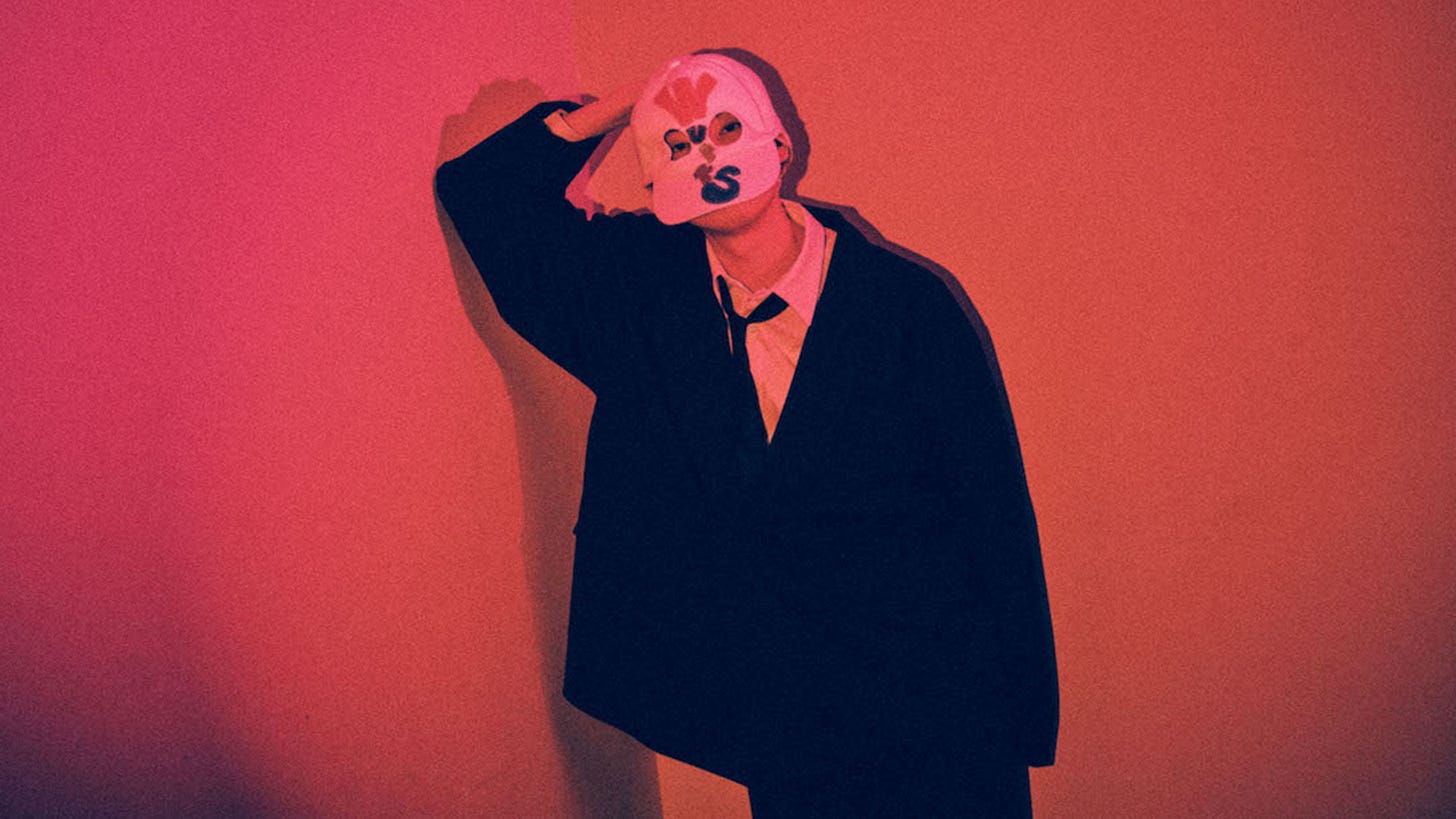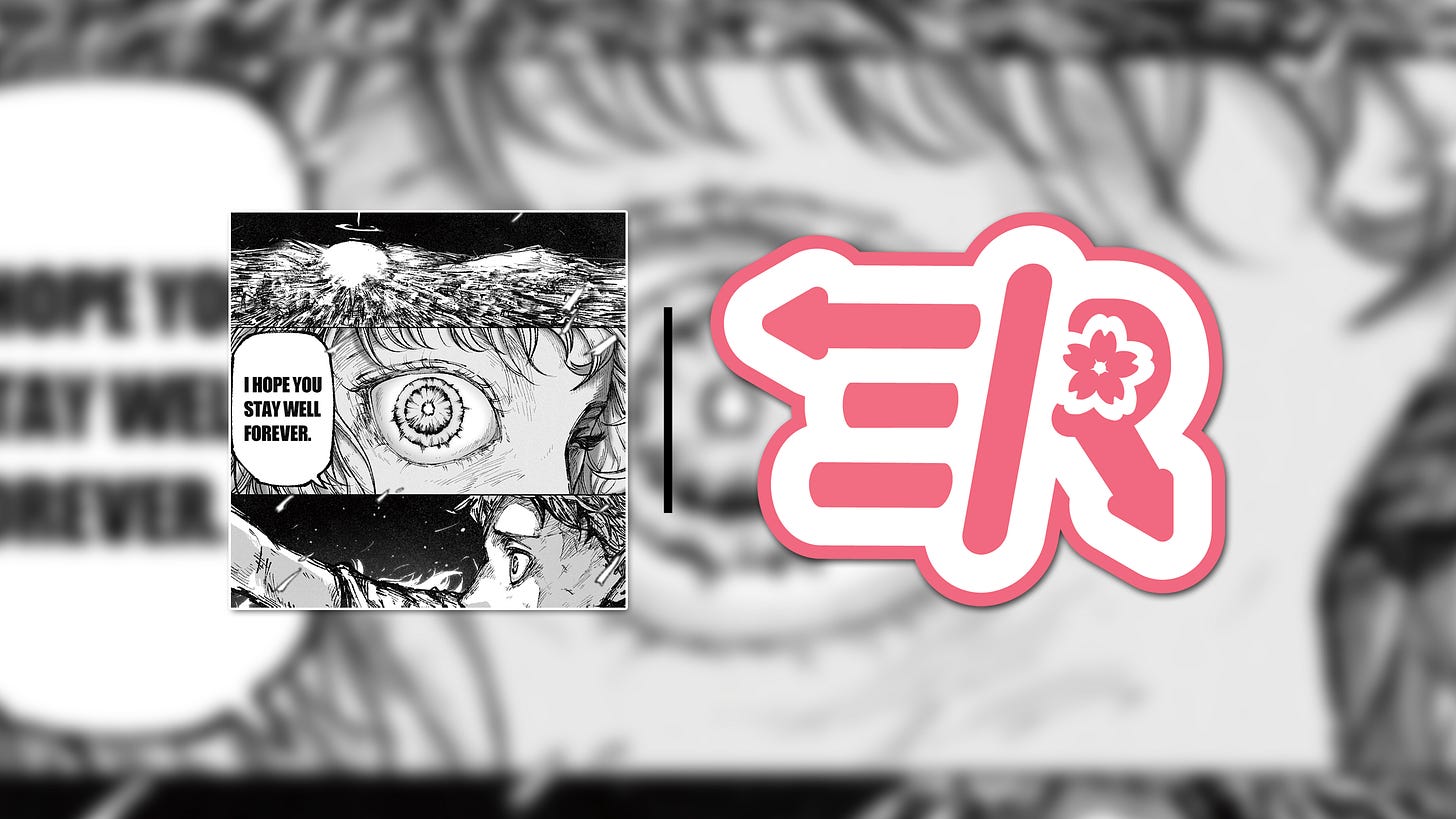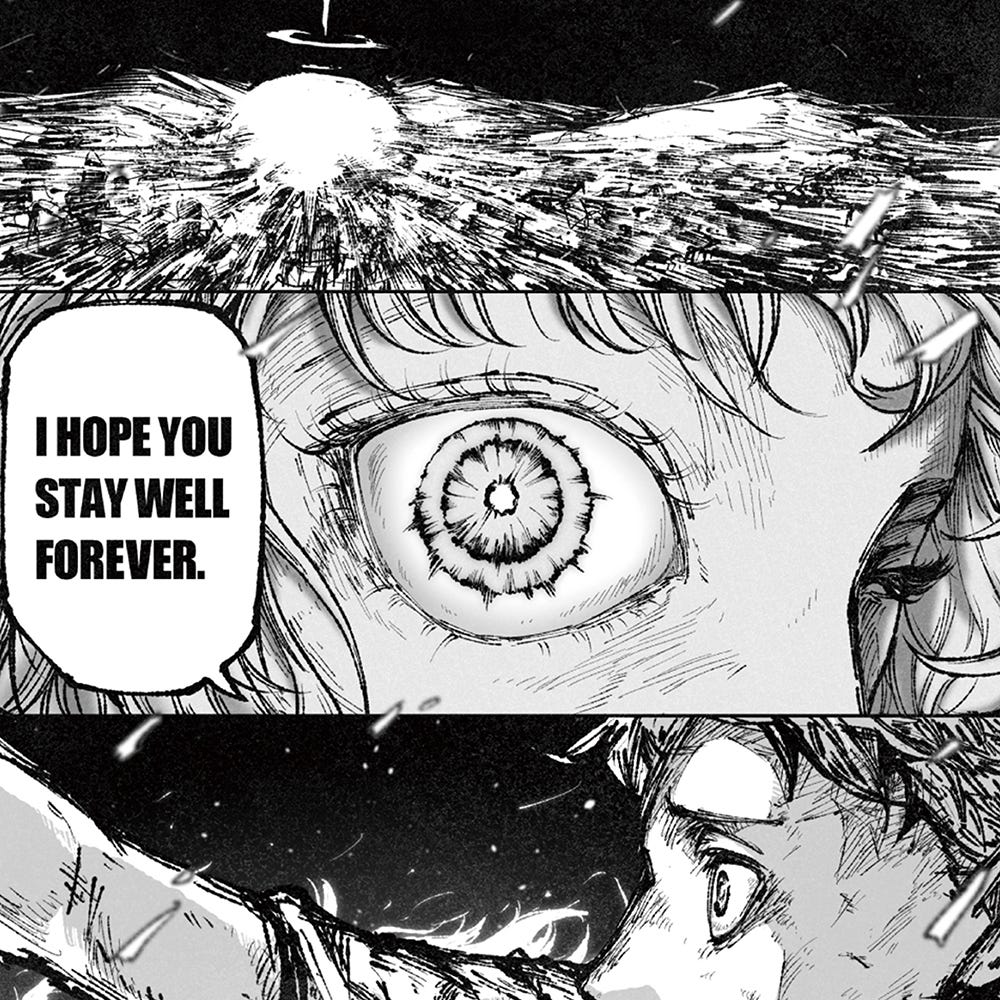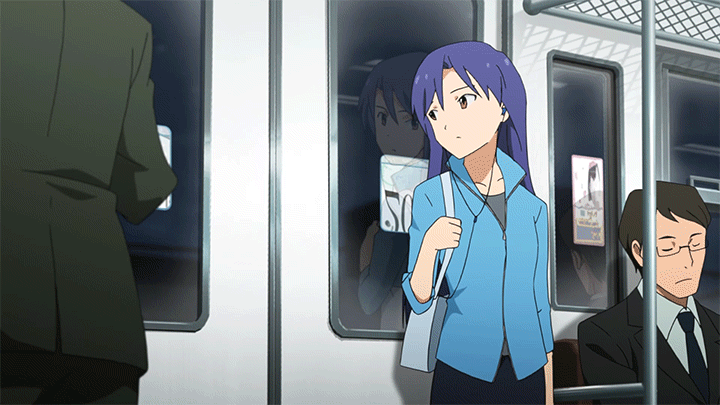I HOPE YOU STAY WELL FOREVER. by WurtS (Album Review) ▸ J-Music Exchange/Rate
Showcasing some artists that kept us coming back for more
Hey, hi, hello and welcome back to yet another J-Music Exchange/Rate review! For those who are unaware of what this is all about, allow me to explain: this is a segment I do alongside my good friend/fellow Japanese music fan Leap250 where we both give each other an album from our own libraries, listen to ‘em, and later give our thoughts in a post. Not only has this given us the opportunity to frequently share some cool music to one another, but it’s also been a way for us to discover brand new albums and artists that we haven’t heard of or listened that much. Plus, we view this has something that you, the reader, can also benefit in, as we hope that you can find some new discoveries of your own through these reviews.
And as always, every month, Leap and I decide on a specific theme to base our choices on, and it happened to be my turn again. What I came up with was ‘albums that made you become obsessed with an artist’. I don’t think I’m alone when I say that I tend to listen to a song/album over and over and over again if it’s THAT good. This happens to me all the time, which can end up being a bit of a detriment since I may miss out on some new releases or even lag behind on my Exchange/Rate reviews since I’m so distracted on a particular artist at the moment. But really, it goes to show how a brand new discovery can really push all the right buttons and may even lead you to further becoming a fan of an artist (one recent example is me liking the indie pop band Botakura, especially with a song of theirs titled “Bubble”).
So yeah, that’s what we’re dealing with today. And without further ado, allow me give you the albums we picked out for March: Leap went ahead and tossed over I HOPE YOU STAY WELL FOREVER. from internet-rooted WurtS; while I gave him an album that I couldn’t put down in 2024, OOTD by hip-hop/rap singer-songwriter ASOBOiSM.
Let’s jump right in!

WurtS (ワーツ) is a Japanese solo artist, who is currently signed under the EMI Records label. He became interested in making music after being entranced by the music video of Lady Gaga’s “Poker Face”, later finding interest in foreign media and even considered studying abroad (more specifically, with a focus on marketing). However, due to the COVID-19 pandemic, restrictions made it difficult to go after said dream, so he decided to try posting his music on social media platforms such as YouTube and TikTok. In 2021, WurtS got to see one of his songs go viral, “You Don’t Understand” (“Wakattenaiyo” in JP), marking the beginning of his upbringing as a new artist.
Fast forward a few years later, WurtS currently has over a million monthly listeners on Spotify, has provided numerous tie-in tracks for various media, collaborated with many notable names such as [Alexandros], Moto (Chilli Beans.) and suis (Yorushika), and even made his first appearance at the illustrious Nippon Budokan this past December.
As of when this post was published, WurtS has released two albums, six EPs, and ten singles.
(info sources: WurtS Official Website, Wikipedia JP, GQ Japan, Real Sound)
Tracklist
STARDUST
Souls / ソウルズ (feat. suis from Yorushika)
Lifestyle / ライフスタイル
After Life
Botsuraku Tenshi / 没落天使 — Fallen Angels
NOISE
Otona ni Naru no wa / 大人になるのは — When I grow up
Miss Sunshine / ミスサンシャイン
YOU AND I
Genkideitene. / 元気でいてね。 — I HOPE YOU STAY WELL FOREVER.
Released: 2024.10.30
I was telling Al when we were first going over our picks for this month’s Exchange/Rate that I basically binge-listened to WurtS’ I HOPE YOU STAY WELL FOREVER for almost the entirety of last December, so much so that it ended up being my second-most listened-to album of 2024 (at the time of writing). Funny enough, I wasn’t a fan of WurtS before this, and the album just kind of landed on my lap one day. In hindsight, that’s not too surprising given how big they are in the Japanese pop scene. I just randomly decided to give it a shot after Spotify recommended it, and, well, the rest is history.
That said, it wasn’t until I sat down to write this (lol) that I really started to internalize what it is about this album that I enjoy so much. What I ultimately landed on is that the way the songs are arranged, they almost build a narrative. Not so much in a thematic sense, but in an auditory one. To me this album feels like the result of what would happen if you handed an artist from this current era of Japanese music a full instrumental ensemble and a suite of production gear, told them to organize a whole set by themselves, with their only instruction being just let to their creativity run wild. That is to say, the more I listened to it, the more I started to feel like there’s actually a bit of a disconnect between WurtS themselves and the sheer scale of what they had to work with for I HOPE YOU STAY WELL FOREVER. I mean, they had a full brass band, ultra-clean mixing and mastering, and even freakin’ suis from Yorushika, it’s like the folks over at UNIVERSAL MUSIC JAPAN told them, “Whatever you need, just say the word, and we’ll make it happen.” And they did. What we got out of that is an album that, when taken in isolation, feels like a whole experience all on its own from the first track to the last. And by the time it’s over, whether it’s because of how relatively short the album is or how the closing track "Genki deteine" feels like a crossfade teaser for more songs to come, you’re left wanting more. And before you know it, you’re right back at the beginning, ready to run it back all over again.
1 ▸ the unique artistry of wurts
It’s honestly a surprise that I’ve never come across WurtS and their music prior to Leap giving me this album, especially because of what I mentioned in the artist bio. Obviously that may be my own fault and/or the algorithm unfortunately not leading me to certain tracks. But regardless, it seems like WurtS has become one of the many artists—both in Japan and the world as a whole—who has really honed in on (and may have even been one of the early pioneers of) the ‘TikTok strategy’, where they primarily share/market their music on said social media platform in hopes that it goes viral. And as mentioned earlier, WurtS did manage to strike gold by doing so, which leads us to his second released album from 2024, titled I HOPE YOU STAY WELL FOREVER (or in Japanese, Genkideitene).
And the first and most notable thing I got out of this album and WurtS as an artist is how… unexpectedly varied this tracklist was. I know I say this a lot whenever I review albums but I think there’s a couple interesting factors on why I had this feeling/opinion.
For one, and I don’t mean this as a slight in any way, there’s a bit of a ‘stereotype’ that I tend to lean on whenever I come across these faceless, indie artists from Japan. Without-a-doubt did this stem from my own & early fandom of Yorushika, ZUTOMAYO and Sangatsu no Phantasia, and how these people have all expressed a specific (and sometimes, same-y sounding) type of melancholic, mysterious atmosphere with both their music and their voices. And while WurtS does still convey similar feelings and even reminds me a lot of a natori or an Eve when it comes to his vocal styling, what makes him stand out to me is his ability to show off styles that aren’t too common—at least, in my own experiences—within this indie pop, ‘yakousei’-ish subculture of Japanese music.
And I do feel like you’re able to get a taste of that right from the start of the album, with the opening track in “STARDUST”. Again, WurtS’ vocals feel very familiar if you’ve ever listened to some songs from many of the male artists around this particular area of modern Japanese music. However, you’re immediately hit with a great presence of various brass instruments and even a fairly upbeat piano performance, which… I can’t say I expected, coming into this album (lol). Same can be said about the following track, “Souls” which also featured guest vocalist suis of Yorushika fame, where IIRC it featured a grand-sounding horn performance from Tokyo Ska Paradise Orchestra. Whether it was because of my initial impressions of the album’s artwork or how I took a quick glimpse and saw that he did collaborate with a person like suis on one of these songs, I just don’t think I anticipated a bit of a ‘brighter’ aspect to this album when I’m much more used to those darker tones.
2 ▸ bringing something new to the table
And while the usage of brass instruments was certainly a surprise, I’d say it’s one of the many examples of how wide of a range WurtS shows off on this album when it comes to musical styles. Of course, we get a good dose of some nice alternative pop/rock-centered tracks, like “Botsuraku Tenshi” or “NOISE”, with those usual subdued, deeper guitar riffs and sweet basslines. Even a song like “YOU AND I” had a cool emotional tone to it, as you get this back-and-forth between somber verses and explosive choruses.
But also hearing WurtS go into a few other unexpected directions was a pleasant surprise, to put it simply. Especially in a song like “Lifestyle” taking on an obvious hip-hop/rap like vibe to it with its cool melodies and record scratching effects. Similarly, “Otona ni Naru no wa” combines a catchy synth melody with an almost dubstep-y touch to it in the numerous instrumental breaks.
And what’s even cooler is that this fairly diverse tracklist is reflective of an overarching concept. In an interview with Spotify Japan’s New Music Wednesday podcast (and the transcript coming from SPICE), WurtS describes this album as one that’s centered around ‘science fiction’, and more specifically the idea of ‘time’. And I think this can be viewed in a few ways, mostly explained by WurtS, like the TikTok-fication of the music industry, “YOU AND I” being about life and death, or the potential nostalgic feeling that people may have when listening to some of these alt-rock tunes (WurtS did mention that he was heavily influenced by bands such as The 1975, Sakanaction and [Alexandros]).
Additionally, I’d say these songs are also an expression of how WurtS has changed as an artist throughout the years. At least from what I could gauge from that interview, he seems to have tried new things, genres and instruments in this latest release of his, especially with the presence of EDM/electronic sounds. But another cool example: with him being much more introverted when he started his music activities, WurtS eventually began participating in live events, where he became more exposed to his fans and gained a greater appreciation for the people who helped him get to where he is now. That is kinda what he described to be the basis of the album’s title track and final song, “Genkideitene”, where it also combines various parts of all the previous compositions into this cool replay/remix.
3 ▸ a familiar vocal styling
Like I said earlier, being someone who generally enjoys these well-known indie/utaite-esque artists, I did like listening to WurtS’ voice in a lot of these songs.
A notable vocal performance would have to be “After Life”, which also happens to be my favorite song off this album. I say that because while the lyrics may seem like a wild mixture of English and Japanese, the way WurtS sings in this is pretty fascinating. It has a very ‘Western’ feel to it, where he sounds very carefree, at-ease, low-energy; similar to some of the American/British alternative, ‘emo’ rock songs I’ve heard throughout my lifetime. He pulls it off so well here and even with the assumption that WurtS is not proficient in English, his nonchalant nature in this song adds so much to it and you end up not really caring about his pronunciation in the end.
And as much as I’ve been mentioning how varied this album’s tracklist is, WurtS’ vocals definitely help it bring it all together, in order to not make it seem ‘all over the place’. Once you hear the first couple tracks, you’ve gotten a good taste of what he sounds like and he does a good job maintaining that throughout the entire album. Again, he does give off natori or Eve vibes, and if you’ve liked the vocal registers of those two, I’d say WurtS would be up your alley.
To sum this review up, I would say that I did enjoy this album quite a bit.
One big reason is because I could absolutely tell why WurtS has caught the eye of Leap and so many other people. He exerts an energy that feels very much familiar when it comes to these indie, ‘yakousei’ type artists, as his vocals and overall demeanor when it comes to singing and songwriting can easily be compared to other artists within this genre. But also, to be able to learn a bit about him as a person and musician, how he presents himself, his strategies with promoting his music, as well as how his experiences have changed the way he creates music… it’s hard not to root for this guy and it’s impressive what he’s been able to achieve so far.
No doubt does he have a great talent for making music, and I almost view him as a ‘poster child’ for the modern day Japanese music/indie pop scene. He embodies a lot of what I’ve seen these past few years, while bringing some new things to the table, and I feel like I HOPE YOU STAY WELL FOREVER is a fantastic display of what he’s all about.
Rating: 8.5/10
Aaaaand that’s all I got for you today!
Solid album! Again, I have no idea how I didn’t come across WurtS yet but I’m glad to know about this talented, TikTok-rooted artist (lol). Definitely am interested in checking out his older stuff, as well as his future releases.
Now that you’re done here, feel free to head over to Leap’s blog to read his thoughts on the album I gave him for this month, OOTD by ASOBOiSM. I really enjoyed looping this back in 2024 and I’m honestly happy that I finally got the chance to feature it on the Exchange/Rate. Click here to check it out!
Thanks for reading!! :D
-al












